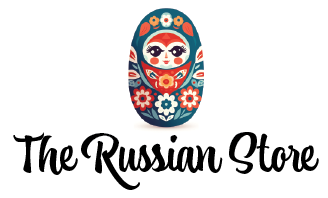Travelling is a lot of fun because it gives a chance to observe and experience different cultures. Culture is a unique way that a particular group of people exercise their everyday activities, it is a unique mindset and worldview that they share. Observing foreign cultures gives me a chance to discover the uniqueness of my own culture. Appreciate it. Admire it. And at times laugh at it.
So I would like to invite you to a short fun overview trip to the Russian way of dealing with life. Couple of fun facts on different life aspects. Let’s start with:
Language
- Russian language is one of the 5 most spoken languages in the world. Due to the USSR heredity, it is used in all former Soviet republics, especially Belarus and Ukraine.
- The word "red" in the name of Red Square in Moscow has nothing to do with communism. It comes from an old Russian word "krasnya" which meant "beautiful". So Russian fairy tales are full of red princes and princesses.
History
- Many Russian leaders were not Russian by origin to start with the first one, Ryurik, who was a Scandinavian Viking. Tsarina Catherine the Great was German, Stalin was Georgian.
- Mikhail Gorbachev was the first and the only President of the USSR.
- The equal voting rights for women were adopted in the USSR in 1918 and in the USA in 1920.
Education
- Russia has a very high literacy rate – 99.7% of population can read and write by the age of 15.
- The Russian State Library which bears Lenin's name is the largest in Europe and occupies the second place in the world after the Library of Congress in the USA.
Science
- Russians started the so-called Space Age. The first satellite launched to space in 1957 was Russian and the first man in space was Yuri Gagarin in 1961.
- Russian language is one of the two official languages aboard the International Space Station. All NASA astronauts are required to take Russian language courses prior to their flight.
Traditions
- Russian way to show respect to a person is to use their full name. It consists of the first name and the patronymic. The patronymic comes from the father's name adding -ovich (-evich) for sons and -ovna (-evna) for daughters. The fun part starts when a foreigner learns how to change the name according to six cases of the Russian language grammar.
- Guests invited to a Russian wedding would start shouting out a word "gor'ko" to the newlyweds at some point of the banquet. The word translates "bitter". By doing it guests ask the bridegroom to kiss his bride and sweeten up the wine that has become bitter.
- The majority of population live in the cities in the multi-storied apartment buildings but have a small piece of land with a small cabin called dacha. Russians enjoy spending their summer weekends there.
Superstitions
- Most Russians are very superstitious. Whistling inside is not approved since it may result in financial crisis, but your left hand itching promises a sudden money income and right hand itches to meet a friend and shaking hands with them. But don't you dare to do it at the door entrance – the fight will certainly follow, especially if you earlier spilled out the salt on the floor.
Food
- Although Russians never smile at strangers, Russian hospitality is an everyday reality. It is considered rude not to offer a meal or at least tea or coffee with a good portion of pastries to your guest. Refusing the treat is almost impossible, the hospitable hosts will not believe you and will try to feed you anyway. So don't pay visits right after a full meal.
- The legendary Russian Vodka was introduced in the 15th century. The word derives from “voda“, which means "water".
- Due to a severe climate with short summers and long cold winters many vegetables and fruits are canned and pickled. As The Telegraph witfully states about Russians, "They pickle everything: cucumbers, beetroots and even their leaders".
Holidays
- Christmas in Russia is celebrated 13 days later than in other countries for Russian Orthodox Church still uses Julian (old type) calendar. So our Christmas falls on January, 7.
- New Year's is the top popularity holiday and Julian Orthodox calendar gives grounds to celebrate it twice, January, 1 and January, 13.
Sports
- One more incident caused by following Julian calendar happened in 1908. Russian Olympic team arrived in London 12 days later.
- 2014 Olympic Games in Sochi were the first time when winter Olympics were held in a warm subtropical climate.
Computer Technologies and Internet
- Russian language is the second widespread language on the internet after English. The term "Runet" is being used to indicate Russian speaking segment of the internet.
- Probably the most popular computer game Tetris was designed by Russian programmer Alexey Pajitnov back in 1985 and was exported to the USA in 1986.
Sources:
